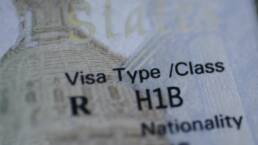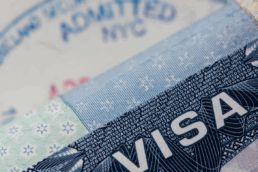On October 28, 2020, the Department of Homeland Security (DHS) announced a notice of proposed rulemaking that would prioritize the selection of H-1B registrations (or petitions, if the registration process is suspended) based on corresponding wage levels. DHS states that this will better protect the economic interests of U.S. workers, while still allowing U.S. employers to meet their personal needs and remain globally competitive.
DHS also states that modifying the H-1B cap selection process by replacing the current random selection process with a wage-level-based selection process is a better way to allocate H-1Bs when demand exceeds supply. If the proposed rule is finalized, DHS states that this new selection process will incentivize employers to offer higher wages or petition for positions requiring higher skills and higher-skilled workers instead of using the program to fill relatively lower-paid vacancies.
This rule would only impact H-1B registrations submitted by prospective petitioners seeking to file H-1B cap subject petitions. It would be implemented for both the H-1B regular cap and the H-1B advanced degree exemption, but would not change the order of selection between the two as established by the H-1B registration requirement final rule published in April of 2019.
Acting DHS Deputy Secretary Ken Cuccinelli said, “With this proposed rule, the Trump administration is continuing to deliver on its promise to protect the American worker while strengthening the economy. The H-1B program is often exploited and abused by U.S. employers, and their U.S. clients, primarily seeking to hire foreign workers and pay lower wages.” He continued, “The current use of random selection to allocate H-1B visas makes it harder for businesses to plan their hiring, fails to leverage the H-1B program to truly compete for the world’s best and brightest, and hurts American workers by bringing in relatively lower-paid foreign labor at the expense of the American workforce.”
DHS will open this rule up for public comment once it has been published in the Federal Register. Individuals will have 30 days to submit comments relevant to the proposed rule and 60 days to submit comments relevant to the proposed information collection. DHS will review all properly submitted comments, consider them carefully, and draft responses before issuing a final rule.
If made final, this rule will have a large impact on the H-1B selection process. If you have questions on this or other H-1B visa questions, be sure to contact Berardi Immigration Law to schedule a consult with one of our attorneys today.
Published 5 November 2020
Ready to have Berardi on your side?
Whether you’re a business looking to hire or a professional hoping to relocate, immigration law can be complicated. But you don’t have to do it alone. Put our experience to work for you.



